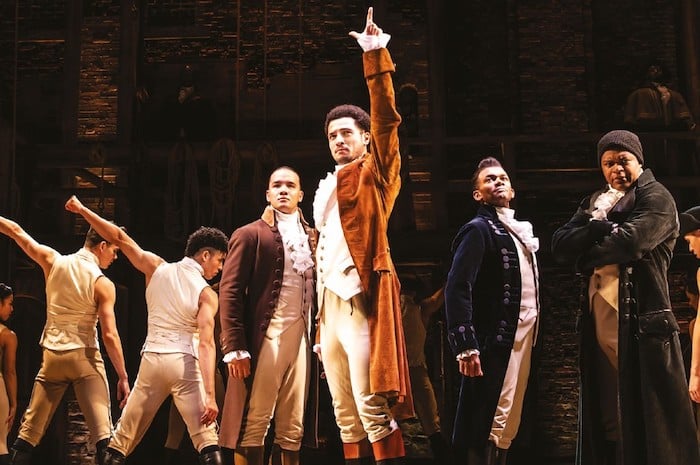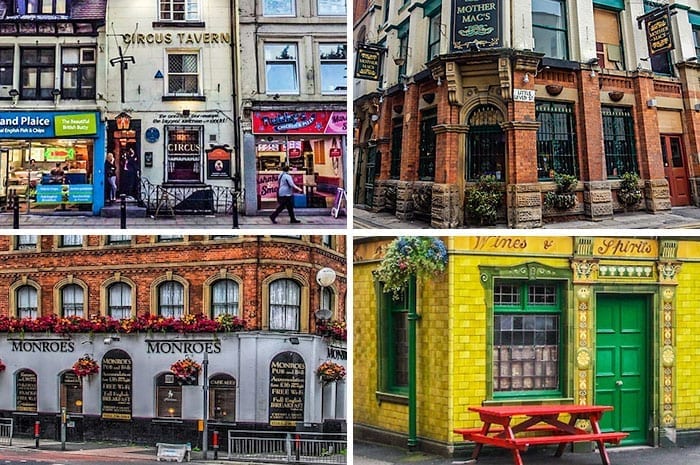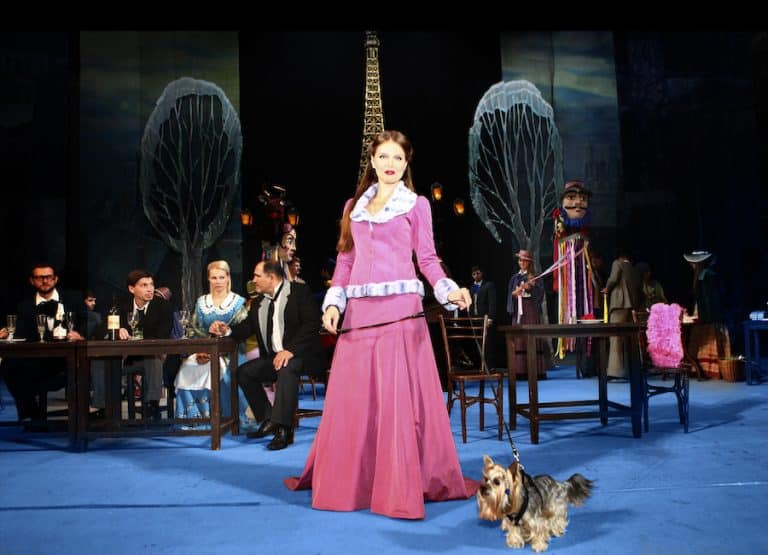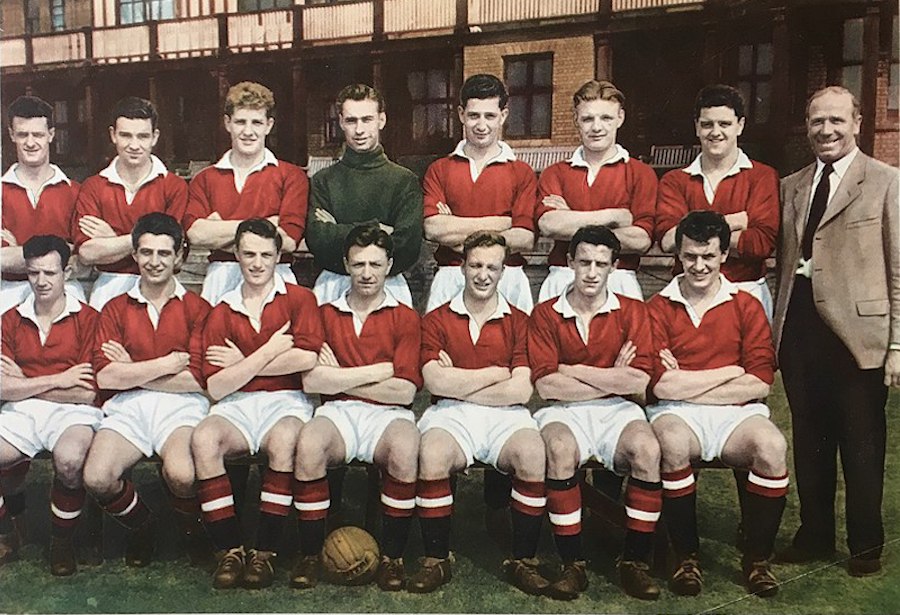The revolution resumes as Hamilton lands in Manchester
- Written by Thom Bamford
- Last updated 1 year ago
- City of Manchester, History, Theatre

Hamilton the Musical
Tickets have been flying out left, right and centre for the musical which has become a worldwide phenomenon.
Hamilton the Musical has taken the world by storm, captivating audiences with its innovative blend of history, hip-hop, and powerful storytelling.
To celebrate its success, we’ve put together a history of Hamilton, to explore the origins of the musical, its cultural impact, controversies, and the reasons behind its unparalleled popularity.
From its historical accuracy to its diverse cast, from its memorable songs to its educational value, Hamilton has become a groundbreaking cultural phenomenon that continues to redefine the landscape of theatre.
The History of Hamilton the Musical
Hamilton the Musical was conceived by the brilliant mind of Lin-Manuel Miranda, who drew inspiration from Ron Chernow’s biography, “Alexander Hamilton.”
Miranda embarked on a remarkable journey to bring Hamilton’s story to life on stage, defying theatrical conventions and pushing boundaries.
With its unique musical language, Hamilton seamlessly merges hip-hop, R&B, and traditional-style show tunes.
The soundtrack draws heavily from these genres, resulting in catchy and impactful songs that resonate with audiences of all ages.
Alexander Hamilton
Alexander Hamilton was one of the Founding Fathers of the United States and a key figure in shaping the early political and economic landscape of the nation.
He was born on January 11, 1755, or possibly 1757 (the exact year is uncertain), in the British West Indies on the island of Nevis. Hamilton was an immigrant to the American colonies, arriving in New York City in 1772.
During the American Revolutionary War, Hamilton joined the Continental Army and quickly rose through the ranks. He served as an aide-de-camp to General George Washington, gaining valuable experience and earning Washington’s trust.
Hamilton’s strategic and leadership skills were evident during the war, particularly in his role at the decisive Battle of Yorktown in 1781.
Following the war, Hamilton became involved in politics and played a significant role in the formation of the United States government.
He was a strong advocate for a strong central government and was instrumental in the development of the U.S. Constitution. Hamilton was a key contributor to “The Federalist Papers,” a series of essays that argued for the ratification of the Constitution.
Hamilton’s vision for the economic future of the United States was equally influential. As the first Secretary of the Treasury under President George Washington, he developed a comprehensive financial plan that aimed to establish the country’s creditworthiness, promote economic growth, and establish a stable financial system. Hamilton proposed the creation of a national bank, a national currency, and a system of tariffs and taxation to fund government operations.
Despite his significant contributions, Hamilton was a controversial figure. He clashed with political rivals, including Thomas Jefferson and James Madison, who favoured a more limited role for the federal government. Hamilton’s views often aligned with the Federalist Party, while Jefferson and Madison were leaders of the opposing Democratic-Republican Party.
Hamilton’s personal life was also marked by drama and tragedy. He married Elizabeth Schuyler in 1780, and they had eight children together. However, Hamilton’s extramarital affairs, including a highly publicised affair with Maria Reynolds, marred his reputation.
On July 11, 1804, Hamilton was fatally wounded in a duel with his political rival, Aaron Burr. The duel took place in Weehawken, New Jersey, and Hamilton died the next day at the age of 47. His death shocked the nation and left a lasting impact on American politics and history.
Alexander Hamilton’s legacy is complex. He is remembered as a brilliant statesman, a key architect of the American financial system, and a staunch advocate for a strong central government. His contributions to the formation of the United States and its early political institutions cannot be understated. The musical Hamilton, based on his life and accomplishments, has brought renewed attention to his story and sparked a renewed interest in his legacy.
Hamilton soundtrack
The Hamilton musical soundtrack is a remarkable collection of songs that bring the story of Alexander Hamilton to life through a diverse range of musical genres and styles.
Composed by Lin-Manuel Miranda, the soundtrack features a fusion of hip-hop, R&B, pop, soul, and traditional show tunes, creating a unique and captivating experience.
The soundtrack includes a total of 46 tracks, each with its own distinct character and narrative significance. From energetic rap battles to heartfelt ballads, the songs in the Hamilton soundtrack showcase the talent of the cast and the depth of the storytelling.
One of the most iconic and widely recognised songs from the musical is “Alexander Hamilton.” This opening number introduces the audience to the titular character and sets the stage for the rest of the story. It highlights Hamilton’s journey from his humble beginnings to his rise as a prominent figure in American history.
Another standout track is “My Shot,” an anthem of ambition and determination. In this song, Hamilton and his friends assert their desire to seize opportunities and make a mark on the world.
“My Shot” captures the youthful energy and revolutionary spirit of the characters, resonating with audiences and becoming an instant favourite.
“Satisfied” is a powerful and emotionally charged song that provides a unique perspective on events. It is sung by Angelica Schuyler, Hamilton’s sister-in-law, who reflects on her unrequited love for him and the sacrifices she made for her sister’s happiness. The song is known for its intricate wordplay and clever lyrical structure.
Other notable tracks include “Wait for It,” performed by Aaron Burr, which delves into his motivations and struggles, and “The Room Where It Happens,” a pivotal song that explores the negotiation and compromise that shaped American politics.
The Hamilton soundtrack also features historical moments and events set to music, such as “Guns and Ships,” which showcases the rapid-fire rap skills of Lafayette as he describes the Battle of Yorktown, and “Yorktown (The World Turned Upside Down),” which celebrates the victory of the American forces.
In addition to these memorable songs, the soundtrack includes a range of emotional moments, political debates, and personal revelations. Each song contributes to the narrative and character development.
The popularity of the Hamilton soundtrack has been immense, reaching a wide audience beyond traditional theatre-goers. The album topped the charts and earned critical acclaim. It won the Grammy Award for Best Musical Theater Album, further solidifying its impact and recognition.
The combination of compelling storytelling, catchy melodies, and powerful performances makes the Hamilton soundtrack a standout achievement in the realm of musical theatre. It has become a cultural phenomenon in its own right, with its songs being covered, parodied, and celebrated by fans around the world.
Whether you are a fan of musical theatre or simply appreciate great music, the Hamilton soundtrack offers a captivating journey through history and a celebration of the power of music to bring stories to life.
Hamilton historical accuracy
While Hamilton captures the essence of Alexander Hamilton’s life, it does take some liberties with historical facts for dramatic effect. Some historians have criticised the musical for condensing or altering events.
However, it is important to note that Hamilton is not intended to be a strict historical retelling. It presents a reimagined narrative that resonates with modern audiences.
That being said, Hamilton’s impact extends beyond entertainment; it has become a valuable educational resource.
Schools have incorporated the musical into their history curriculum, using it as a tool to engage students and spark their interest in the Founding Era.
By presenting history in a relatable and accessible way, Hamilton encourages a deeper understanding and appreciation of America’s past.
Hamilton controversy
While Hamilton has sparked controversy, it has also prompted important conversations about representation, historical storytelling, and the intersection of art and politics. The musical’s impact and popularity have helped bring these discussions to the forefront, highlighting the complex nature of portraying history on stage and the ongoing quest for inclusivity and accuracy in the arts.
One of the most significant points of contention revolves around the show’s deliberate choice of non-white actors to portray historical figures predominantly represented by white individuals. This colour-conscious casting challenged traditional norms and sparked debates about historical accuracy versus representation. Critics argued that the casting deviated from the historical record, while supporters praised it as a progressive step towards inclusivity and diversity in the arts.
Some historians have accused Hamilton of taking liberties with historical facts to suit its narrative. While the musical is inspired by Alexander Hamilton’s life and draws from Ron Chernow’s biography, certain events and timelines are condensed, rearranged, or altered for dramatic effect. This creative license has led to discussions about the responsibility of art to accurately depict historical events and the potential impact of fictionalising or simplifying complex historical figures and their actions.
Critics argue that Hamilton overlooks or downplays the role of slavery in America’s founding era. As a production focused on the Founding Fathers, the musical is criticised for not fully addressing the complexities of their involvement in the institution of slavery.
Similarly, some argue that it neglects the experiences and perspectives of Indigenous peoples during this time period. These omissions have prompted discussions about the limitations of the musical’s narrative scope and the need for a more comprehensive examination of history.
Given its themes of ambition, revolution, and the pursuit of power, Hamilton has been subject to varied political interpretations.
Some view the show as a celebration of American ideals and a rallying cry for progressive values, while others believe it fails to adequately critique the problematic aspects of the Founding Era and perpetuates a mythologised version of history.
These differing interpretations have led to polarized discussions about the musical’s political messaging and its implications in the present day.
Hamilton Awards and Accolades
Following its success on Broadway, Hamilton embarked on a global tour, captivating audiences in cities such as London, New York, Chicago, Los Angeles, Toronto, Sydney, and Melbourne.
Its upcoming 15-week run at the Palace Theatre in Manchester, UK, has already generated significant excitement among theatre enthusiasts.
Hamilton shattered records and redefined the possibilities of theatre. It received an astonishing 16 Tony Award nominations, winning 11, including the coveted Best Musical award. The show’s infectious music, thought-provoking lyrics, and captivating performances resonated with audiences around the world.
Hamilton’s appeal extended beyond traditional theatregoers, attracting a younger demographic and fuelling a renewed interest in history. The fusion of hip-hop and history breathed new life into a subject often considered dull or inaccessible, making it relatable and engaging for all.
The musical’s popularity transcended the stage and permeated popular culture. Its iconic songs, such as “My Shot,” “Alexander Hamilton,” and “Wait for It,” have been parodied, covered, and referenced across various media platforms.
The cast recording reached the top of the Billboard charts, earning a Grammy Award and introducing Broadway to a broader audience through digital platforms.
With its unconventional approach, it has challenged long-standing traditions, ignited conversations about representation and historical accuracy, and inspired a new generation to embrace history and diversity.
From its origins as a passion project to its rise as a worldwide sensation, Hamilton’s journey has been marked by controversies and fervent acclaim.
Its power lies in its ability to captivate audiences with its memorable music, powerful performances, and thought-provoking narrative.
If you want to get tickets to this groundbreaking production at the Palace Theatre, you can do so by clicking here.
- This article was last updated 1 year ago.
- It was first published on 27 June 2023 and is subject to be updated from time to time. Please refresh or return to see the latest version.
Did we miss something? Let us know: [email protected]
Want to be the first to receive all the latest news stories, what’s on and events from the heart of Manchester? Sign up here.
Manchester is a successful city, but many people suffer. I Love Manchester helps raise awareness and funds to help improve the lives and prospects of people across Greater Manchester – and we can’t do it without your help. So please support us with what you can so we can continue to spread the love. Thank you in advance!
An email you’ll love. Subscribe to our newsletter to get the latest news stories delivered direct to your inbox.
Got a story worth sharing?
What’s the story? We are all ears when it comes to positive news and inspiring stories. You can send story ideas to [email protected]
While we can’t guarantee to publish everything, we will always consider any enquiry or idea that promotes:
- Independent new openings
- Human interest
- Not-for-profit organisations
- Community Interest Companies (CiCs) and projects
- Charities and charitable initiatives
- Affordability and offers saving people over 20%
For anything else, don’t hesitate to get in touch with us about advertorials (from £350+VAT) and advertising opportunities: [email protected]



Afrosocial is changing the game for Afro-Caribbean professionals in Manchester


From paws to applause: Could your dog be Manchester’s next big opera star?
















